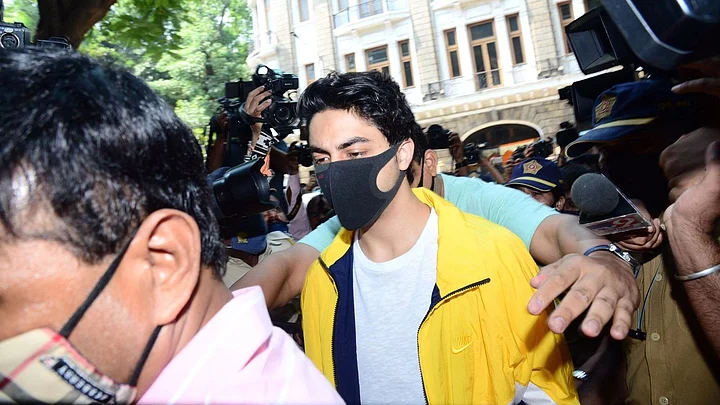The Bombay High Court on Saturday, 20 November, released the detailed order on why it granted bail to Aryan Khan, son of Bollywood superstar Shahrukh Khan, in the cruise ship drugs case.
Justice Nitin Sambre found that there was no prima facie evidence that Khan, from whom no drugs were recovered by the Narcotics Control Bureau, entered into any conspiracy with other co-accused Arbaaz Merchant and Munmum Dhamecha.
"After having gone through the Whats-App chats extracted from Applicant/Accused no. 1’s phone, nothing objectionable could be noticed to suggest that Applicant nos. 1 & 2 or all three applicants along with other Accused persons in agreement have meeting of minds and have hatched conspiracy committing the offence in question."Justice Sambre's order granting bail to Khan, Merchant and Dhamecha
The judge noted that "There is hardly any positive evidence on record to convince this Court that all the accused persons with common intention agreed to commit unlawful act."
The NCB had alleged that even though no drugs had been recovered from Khan, he was engaged in a conspiracy with his friend Merchant and other accused, and hence could be booked under Section 29 of the stringent Narcotic Drugs and Psychotropic Substances Act (NDPS Act).
The high court has held that while a high degree of evidence may not be required at this stage to prove the conspiracy, "there has to be presence of basic material in the form of evidence so as to substantiate the case of conspiracy against the Applicants. Merely because of Applicants were travelling on the cruise, that by itself cannot be termed as satisfying foundation for invoking provisions of Section 29 against the Applicants."
Justice Sambre expressly rejected the NCB's claim that Khan, Merchant and Dhamecha could be said to be involved in any offences involving commercial quantities of drugs – which would have meant it would have been nearly impossible to get bail under Section 37 of the NDPS Act.
As a result, the only possible offences at play were those for possession/consumption of small quantities of drugs where the maximum punishment prescribed is one year's imprisonment. And even for this, no medical examination had been conducted to check whether they had actually consumed drugs as the NCB claimed.
"Applicants have already suffered incarceration for almost 25 days. The Applicants were not even subjected to medical examination so as to determine whether at the relevant time, they had consumed drugs."Justice Sambre's order granting bail to Khan, Merchant and Dhamecha
The court order also clarified that the confessional statements allegedly provided by Khan, Merchant and Dhamecha to the NCB where they supposedly accepted their involvement in a crime, cannot be relied on to keep them in jail at present as such statements " are not having any binding effect in law", as per the Supreme Court's Toofan Singh judgment of 2013.
Khan had been granted bail by the high court on 28 October, after a special NDPS court had rejected their pleas. However, the detailed order had not yet been released.
(At The Quint, we question everything. Play an active role in shaping our journalism by becoming a member today.)
